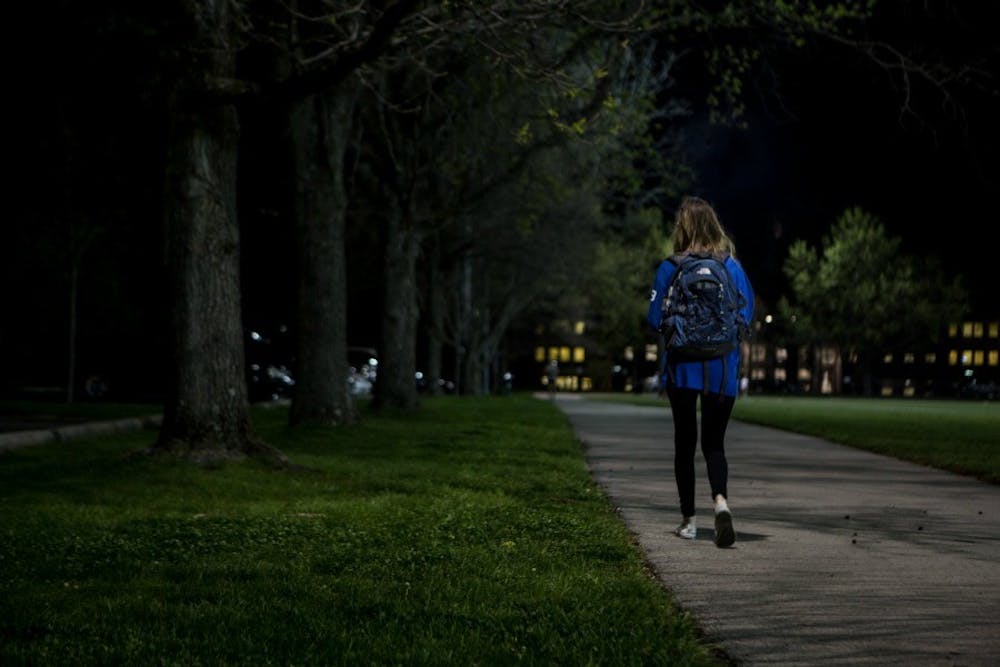Last year, Cook Field saw largest number of offenses since 2010
By Bonnie Meibers, Senior Staff Writer
There have been numerous traffic incidents throughout the years at Cook Field. These used to be the most frequent offenses in the area, but in recent years, traffic offenses are the least of students' worries.
In 2015, six alcohol violations, one assault, one count of criminal mischief, two counts of property damage, one sex offense and four traffic violations occurred on Cook Field -- making last year's total the largest amount of offenses since 2010.
Armstrong Student Center, one of the most heavily trafficked areas on campus, had 37 offenses total for the academic year thus far.
Since 2010, there has been at least one alcohol violation on Cook Field every year. The six violations in 2015 are the most on record for Cook Field.
Captain Ben Spilman, administrative captain for Miami University's police department, said the size of Cook Field is a major reason that a number of incidents have occurred there in the past and during this year. He said that the number does not surprise him in the slightest.
"I think, much like anywhere on campus, if you use a good common sense approach to safety you're going to be safe," said Spilman.
He compared the field itself and the parking lots surrounding it to High Street, which is a very heavily trafficked area and therefore has a lot of parking violations.
However, some things Spilman did find unusual in the statistics were the assault and the sex offense. While assaults typically occur outside, sex offenses do not, he said.
"Sex offenses usually occur behind closed doors, where you're supposed to feel safe," said Becca Getson, Miami's Title IX coordinator.
In the case of the sex offense, the victim did not know their assailant. This is also unusual. According to the Rape, Abuse and Incest National Network (RAINN), four out of five assaults are committed by someone known to the victim.
"Perpetration by strangers of sexual misconduct does happen but is less common than is typically believed," said Getson.
Getson said that sex offenses are the most under-reported crimes. The RAINN reports that 68 percent of sexual assaults are not reported to the police.
Spilman speculated that the majority of alcohol violations that occurred on Cook Field this past year would not have occurred in a year when East Quad was offline, like last academic year.
"If you put [the crimes] in context it makes sense why you'd find all these violations there," Spilman said. "Not necessarily because Cook is some hotbed of criminal activity."
Sophomore Devan Osborne said that she feels that the lack of lighting on Cook Field is a concern.
"I try not to go over there at night by myself," said Osborne.
In way of preventing crime on Cook Field, turning on more lights in the area would not make the area safer, Spilman said.
"[Turning on more lights] would be a deterrent of sleep for others," he said. "I don't know that lighting would do anything but attract more people to it at night."
Cost is also a factor in getting more lights turned on in the area as well as installing more emergency blue lights, said Spilman.
"Overall though, considering the number of people who use Cook Field as a facility on a daily basis, it's a safe place to be," said Spilman. "Just like the rest of campus."

